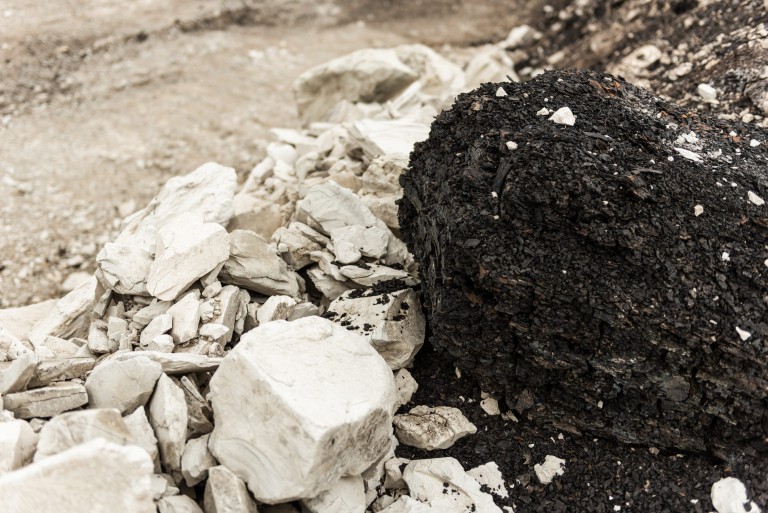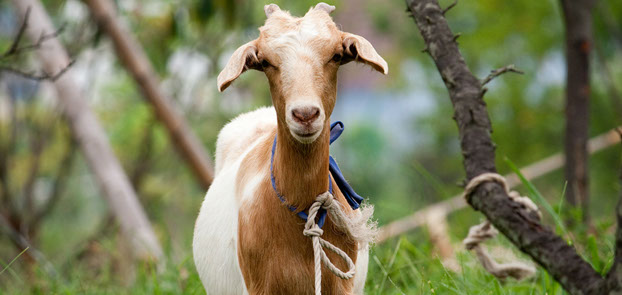Parasites continue to be an important concern for goat farmers and producers. These parasites can cause economic and production losses and even serious illness and death in goats. In fact, internal parasites are recognized as a common disease among goats.
An infected goat may show symptoms and become lethargic, have diarrhea, lose weight or barely be able to maintain their weight. However these signs can easily go unnoticed, posing a serious threat to the health and safety of your animal.
Internal parasites infect the gastrointestinal tract, liver, lungs, blood system, lymphatic system, and skin of a goat.
Parasites are present in almost every herd in the United States. The most common parasites that infect these herds are barber pole worms, round worms, stomach worms, Cooper’s worms, wire worms, hookworms, threadworms, whipworms, and nodular worms, lung worms and meningeal or brain worm.
An adult worm lives in the stomach of a goat where it lays a large number of eggs. These eggs are passed in manure. The eggs develop and hatch within 5 days to several months. Warm and wet conditions are most favorable for the development of the eggs.
A goat becomes infected when it consumes these parasites while out on pasture or in a barn. Larvae that hatch out in the pasture are splashed onto blades of grass by the rain where they are then consumed by goats. It is necessary for a goat to ingest the larvae in order for it to complete its life cycle.
Once they have been consumed, the larvae take approximately 2 to 3 weeks to mature and begin to lay eggs in the goat’s stomach. Some larvae may also become dormant after they have been eaten. These larvae wait to develop and are often immune to de-wormers.
Sufficient damage is caused to a goat by these parasites. Larvae in the stomach damage gland cells and parasites such as barber pole worms live on blood, removing considerable amounts from the animal. The parasite may remove blood faster than the animal can replace it, resulting is death.
Brain worms are transferred to goats by deer. The brain worms live in the lining of a deer’s brain and are passed in their feces. While these worms are not dangerous to the deer, they can have very harmful effects on goats. The larvae in the deer’s manure are eaten by snail and slugs which in turn are consumed by goats out on pasture.
Goats are most at risk out in the pasture when the weather has been damp and warm. However, larvae can survive winter conditions, if they are not too harsh, and therefore may be found in pastures in the early spring.
It is important to have a veterinarian check stool samples in order to determine what type of parasites are infecting your goats, the extent of the infection and what you can do to treat them.
A simple check that you can perform yourself involves looking for signs of anemia. This can be done by checking your goats’ gums as well as underneath their eyelids. These areas should be bright pink or red in color. If they are pale pink or grey your goat is showing signs of anemia and this is an indication that they should be de-wormed. Dirty rear ends from diarrhea can also be a sign that your goat may be infected with internal parasites.
In order to prevent parasites it is important that you maintain proper grazing management. This means moving goats to a new pasture once it has been grazed down to a certain level. Orchard grass and fescue should be grazed when the plants are between 3 inches and 10 inches tall and Bluegrass and clover should be grazed when the plants are 2 inches to 5 inches tall.
The best way to protect your animals is to de-worm them a few days before sending them out to pasture in the spring and then again several weeks later. In order to protect them through the winter months it is best to de-worm them when the weather becomes cold and frost begins to show up. This will remove any parasites that they have consumed and protect them throughout the winter.
During the summer many farmers de-worm their entire herd while others only treat goats that show sign of infection. A major concern with de-worming goats is that over time the parasites may become immune to certain de-wormers. It is important to use a variety of de-worming methods and preventative techniques.
Whichever method you prefer, it is important to treat your goats in order to protect them from deadly infections of internal parasites. Be sure to monitor the effectiveness of your de-worming applications and consult a veterinarian for professional advice.
Image by eviltomthai



